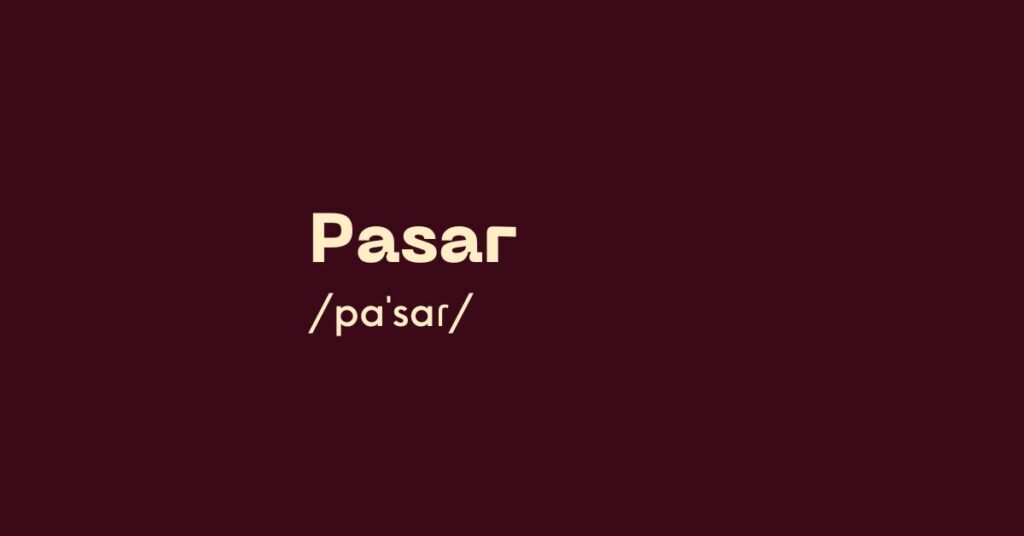Today’s Spanish word of the day is “pasar”.
You might guess that it means “to pass”, and you’d be right. However, it can also have several other meanings, including “to happen”, “to spend” (as in “to spend time”), “to cross” (as in “to cross the street”) and “to meet” (as in “to meet a requirement”).
When referring to spending time, it’s used in a similar way to how the verb “have” is used in English, for example:
- Lo pasamos muy bien. – We had a great time.
It’s also used in a lot of contexts where English uses “to come” or “to go”, for example:
- Pasa, por favor. – Come in please.
- ¿Qué pasa? – What’s going on? / What’s up?
- ¿A qué hora pasa el próximo bus? – What time does the next bus come?
- ¿Puedo pasar? – Can I come in/through?
These are just a few of the ways you can use “pasar”. It’s a very versatile word, so look out for it and remember it doesn’t always translate as “to pass”!
Like the English word “pass”, Spanish “pasar” comes from Latin passus, meaning “step” or “pace”. If we think of life like a journey, it makes sense to think of things that happen or things that happened in the past as steps along the way.
“Pasar” is a regular verb that has the same conjugation pattern as other regular -ar verbs.
Example sentences
¿Te la pasaste bien anoche?
Did you have a good time last night?
Voy a pasarme por el mercado más tarde.
I’m going to drop by the market later.
Me gustaría pasar más tiempo en este lugar.
I’d like to spend more time in this place.
No pasa nada.
No worries.
No quiero pasar por maleducado.
I don’t want to come across as rude.

